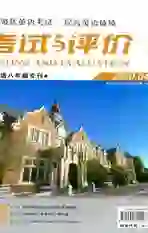Unit7词汇要点讲解
2020-10-26李紫薇
李紫薇
1. meter n. 米
The street is 10 meters wide. 这条街有10米宽。
【拓展】 此处为“基数词+meters / kilometers+deep / long / wide / high”结构, 表示某物有“多深、多长、多宽、多高”等。
The Yellow Crane Tower in Wuhan is more than 50 meters high. 武汉的黄鹤楼五十多米高。
The Yellow River is 5,464 kilometers long. 黄河有5,464千米长。
The well is about ten meters deep. 这口水井大约十米深。
2. population n. 人口(数量),全体居民
The population of Wuhan is 14,186,500. 武汉的人口数是14186500。
【拓展】 population作名词, 意为“人口,人口数量”。population单独作主语时,谓语动词用第三人称单数形式。
① 分数或百分数修饰population作主语时,谓语动词常用复数形式。
Thirty percent of the population live in the city. 30%的人口住在城市。
② 对人口的数量提问用what。
What s the population of Beijing? 北京的人口是多少?
③ 表示某地有多少人口时用“have a population of+数字”。
The town has a population of about forty thousand. 这个镇有大约4万人口。
3. tour n. 旅行,观光
They re going on a world tour. 他们正在环球之旅。
【辨析】 tour, journey, trip和travel的用法区别:三者都有“旅行”的意思,但各词的含义有所不同。
① tour指旅行规模大、路线曲折,表示大型的参观、访问、(巡回)旅游、视察、购物、演出等,可作动词和名词。
The band are on a two-month tour of Europe. 乐队目前在欧洲进行为期两个月的巡回演出。
② journey通常指陆地上的远距离“旅行”,有时也表示短程的步行距离。journey只作名词。
My family took a journey from Beijing to Shanghai last week. 我的家人上周从北京到上海旅行。
—How long is your journey to school? 你上学的路有多长?
—Only about 10 minutes. 只有10分钟。
③ trip一般指时间短、距離近的“旅行、远足”,在非正式用语中可指长途旅行,代替journey,只作名词。
They also went on a trip to Wuhan last year. 他们去年也去了一次武汉之旅。
④ travel指总概念性的“旅行,游历”,指长时间、远距离的“旅行”,可作动词和名词。其复数形式意为“旅游笔记,游记”。
At present, many people are fond of travel in their spare time. 目前,许多人喜欢在业余时间旅行。
另外,voyage主要指“航海,航空,航行”等。
4. achieve v. 完成,实现
Zhong Nanshan has experienced many difficulties and finally achieved success. 钟南山历尽坎坷终获成功。
【拓展】 achieve表示“(通过努力)实现;取得(成绩、成功、目标)”等。achieve our dream意为“实现我们的梦想”, 相当于make our dream come true。
I achieved a good mark in the math test yesterday. 我在昨天的数学测试中得了高分。
achievement n. 成就,成绩
I felt a great sense of achievement when I reached the top of the mountain. 当我到达山顶的时候,我有一种巨大的成就感。
5. include v. 包括,包含
This plan includes most of your suggestions. 这项计划里包括了你们的大部分建议。
【拓展】 ① include后可接动词V-ing形式作宾语,不接不定式。
My job doesn t include making coffee for the boss. 我的工作并不包括为老板煮咖啡。
② including通常被用作介词,后接名词或代词,构成介宾短语,意为“包括……在内”。
There are 40 students in the classroom, including me. 教室里有40个学生,包括我。
6. succeed v. 成功,实现目标,完成
Ms. Li Lanjuan worked hard and she succeeded at last. 李兰娟女士努力工作,她终于成功了。
【辨析】 succeed, success和successful的区别:
① succeed 表示“成功”,是不及物动词,因此不能用于被动语态。词组:succeed in doing sth.。
He succeeded in working out the math problem. 他成功地算出了那道数学题。
② success是名词,表示抽象意义的“成功”,不可数。表具体意义时指“成功的人或事”,是可数的。
He has had great success in business. 他事业上很成功。
③ successful是形容词,可以用来作定语或表语。
This is a very successful speech. 这是一次非常成功的演讲。
作表语时后面不能接不定式,而是接in doing sth.。
They were successful in launching a communication satellite. 他们成功地发射了一颗通讯卫星。
7. weigh v. 称……重量
过去式:weighed;现在分词:weighing;过去分词:weighed
How much do you weigh? 你体重多少?
【拓展】 weight n. 重量
What is the weight of the parcel? 包裹有多重?
8. excitement n. 激动,兴奋
The news caused great excitement among her friends. 这消息使她的朋友们兴奋不已。
【辨析】 excited和exciting:
excited意为“兴奋的,激动的”,是-ed形容词,一般用来修饰人。
He was very excited to be asked to play for Wales. 入选威尔士队使他非常兴奋。
exciting意为“令人兴奋的,使人激动的”,是-ing形容词,一般用来修饰物或事件。
The race itself is very exciting. 比赛本身非常刺激。
9. protection n. 保护,保卫
protect作及物动词,意为“保护”,名词形式是protection。protect sb. / sth. from...意为“保护某人/某物免受……伤害”。
It is our duty to protect the children. 保护儿童是我们的责任。
【拓展】 protect后面可接介词against,意为“保护,保卫”。
This medicine can protect you against heart disease. 这种药可以帮你预防心脏病。
10. or so
or so意为“大约”,表示不确定的数目。
There are twenty foreign teachers or so in our school. 我们学校大约有20名外教。
【辨析】 or so, about与around三者均表示“大约”,用于修饰数字,表示不确定的数目。or so通常位于修饰词之后,而about与around 通常位于修饰词之前。
The book cost me 20 yuan or so. 我买这本书花了大约20元。
=The book cost me about / around 20 yuan.
【随堂检测】
I. 根据句意和首字母提示填写单词。
1. Our playground is about 2,000 s______ meters in size.
2. The biggest d______ in the world is in Africa.
3. The city has a p______ of three million.
4. The ruler is one m______ long.
5. The car is running at the speed of 60 k__ __
per hour.
II. 用所給单词的适当形式填空。
1. There are thousands of ______ (tour) visiting the Great Wall every day.
2. In the interview, she told the reporter her
______ (amaze) story.
3. If you want to know about Yantai, you can feel free ______ (ask) me.
4. I think English is as ______ (important) as Chinese.
5. —What is ______ (high) mountain in the world?
—Qomolangma.
III. 从方框中选择合适的单词并用其适当形式填空,有一项多余。
achieve, excite, drink, ill, cut, remain
1. They all jumped with ______ when they heard the good news.
2. The man didn t go to work because of his
______.
3. ______ milk is good for us.
4. Now most pandas live in the ______ forests.
5. Now many people start to ______ down the forests.
